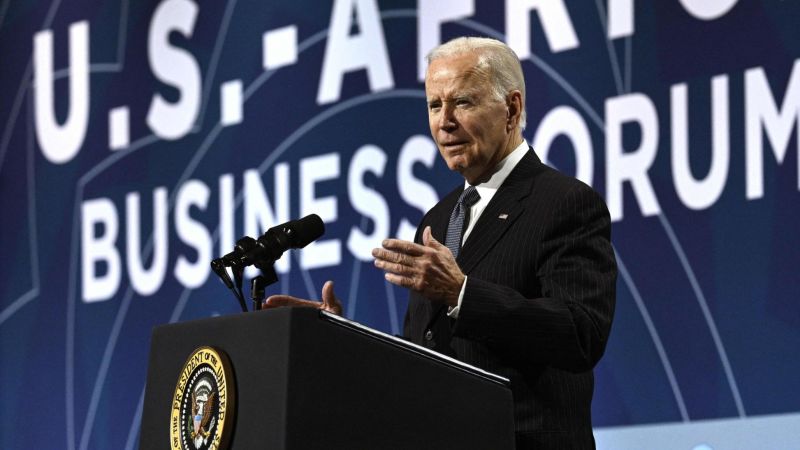
President Biden is hosting African Leaders at the U.S- Africa Leaders Summit in Washington D.C to discuss trade, security, and democracy, eight years after the last one in 2014. Circumstances have drastically changed since 2014 for the U.S. as well as African Nations owing to political crises, climate change and the pandemic. However, Biden’s agenda for reviving the Summit have other motives than strengthening U.S. – Africa Relationship: to get an insider perspective on the growing Russian-China influence in the African Continent, a claim D.C. is desperately rejecting.
Russia in Africa
Over the last decade, Russia has strategically planned their presence in the African Continent. Russian influence has resulted in driving out the colonial presence of the French in Mali, leading to much debate about the Russian presence in Africa. Russia, latching on to its legacy of supporting liberation struggles, have also found the support of African Leaders who has been aiming to remove colonial remnants from the continent. However, Russia’s interference is not merely an effort to liberate Africa from its colonial past but also to weaken Western influence in the region. However, Russia has been strategic in this mission. The State doesn’t often directly engage in this discourse but through Russian mercenaries and oligarchs, who are independent actors who adhere to Kremlin ideologies. Russia’s influence seems to be accepted by the leaders of the continent, who abstained from voting on Russia’s suspension from the UN Human Rights Council.
China in Africa
China has been a significant source of foreign investment in the African continent. China has realized Africa’s immense potential, especially its natural and human resources. China, while significantly importing oil from the Middle East, has also branched out to African nations such as Sudan, Angola, and Nigeria for its oil needs. China has also aimed to boost the African economy through its Belt and Road Initiative. Unlike the West, which suffocates Africa with aid, condescending humanitarian interventions and undermining the caliber of the region, China has invested in the area and its potential. This has increased China’s approval ratings with politicians and people alike. Africa is finally being represented, and the Chinese are reaping the benefits of it.
Both Russian and Chinese triumph in the region has indeed created a buzz in the West, with the United States rechecking African loyalties to the nation through this summit. China’s and Russia’s economic and military efforts in the region seem to accelerate the end of American hegemony in Africa. While the U.S. insists that the summit will not delve into these factors, the international community closely observes Biden’s efforts to revive its role in Africa. Unfortunately, the U.S. was not the only State extending its hospitality to the region. Russia, China and even Turkey, who promised them support for a permanent seat on the U.N. Security Council, may have beat up the game. Africa’s geopolitical significance is rising, and every country wants a stake in it.
However, if America needs to maintain its rapidly declining position, the Summit must produce a concrete economic partnership with the region, not as an aid but as a two-way dynamic approach that benefits both nations. The U.S. Administration must look at Africa as a goldmine of opportunities: with human resources set to double and raw materials aplenty. The way forward is to meet Africa halfway instead of treating it as a problem. While President Biden is all set to announce American Support for an African Union Seat at the G20 and for better representation at International Organisations, the question of whether it is enough to compete against other countries will unravel in the coming days. While reminders of American aid during the peak of the HIV epidemic and humanitarian intervention may evoke some support, Africa is eyeing debt relief and equal economic partnerships. On a positive note, Biden’s approach is different from his predecessors, but now know they have a choice.
While the ‘big players’ are vying over Africa, the country that provides the most economic opportunities with the trap of debt and respect for the socio-cultural traditions of the African Continent. The U.S. can no longer make decisions for Africa but can provide it with a more constructive solution that may leg up its chance in this geopolitical ‘race’. Partnership with China and Russia comes with a cost, and the Africa Union must be reminded of the same. Russia’s role in supporting the Coup D’état in Mali and China’s debt trap policies disguised as economic opportunities must be analysed by the Union before entering into partnerships. It may be a difficult task to unite every State within the African Union, but this Summit is indeed an interesting event, where the international community is eagerly awaiting Africa’s response. Whom will they choose?
By The European Institute for International Law and International Relations.














